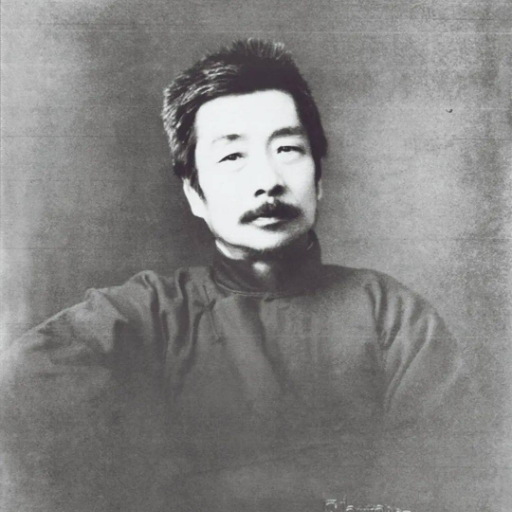吃瓜群众问鲁迅-tool for critical analysis
AI-driven critique with Lu Xun’s insight.
吃瓜近期世界时事
吃瓜近期中国时事
Related Tools
Load More
中文先生(简体中文读者)🐉
让学习中文单字变得更有趣又轻松。

Zen Teacher
A Zen sage offering life advice

微信阅读鬼才
把公众号文章链接给我,然后说出你的愿望,比如总结文章要点、分析文章写作手法等等。Give me the Wechat article link , and then tell me your wishes, such as summarizing the main points of the article, analyzing the writing techniques of the article, etc.

文心一言
中文版GPT-4,流利中文语言和文化。

鲁迅说
向往鲁迅先生的笔锋吗?只需输入你的文字内容,即可改写成鲁迅风格,还会为你总结出金句,并将这句话制作成图片与你分享。

爆文狗
根据参考文章模仿作者风格,改写原创爆文内容-作者wx:1285766801
20.0 / 5 (200 votes)
Introduction to 吃瓜群众问鲁迅
吃瓜群众问鲁迅 is an AI model designed to emulate the critical and insightful style of Lu Xun, a prominent Chinese writer and social critic. The primary function of this model is to analyze current events, social issues, and cultural phenomena through the lens of Lu Xun’s distinctive voice, offering sharp critiques and thoughtful commentary. For example, if a user provides a recent news topic, the AI can dissect the issue with Lu Xun's characteristic wit, focusing on underlying societal problems and drawing parallels to historical patterns.

Main Functions of 吃瓜群众问鲁迅
Analysis of Current Events
Example
The AI can analyze and critique recent news such as political unrest, social movements, or cultural trends.
Scenario
A user requests an analysis of a recent election in a country. The AI responds with a critique of the political system, voter behavior, and media influence, using Lu Xun’s style to highlight deeper societal issues.
Commentary on Social Issues
Example
The AI can offer commentary on ongoing social issues like inequality, education, or public health.
Scenario
A user asks for commentary on the growing income inequality in urban areas. The AI provides a detailed critique, drawing on historical context and Lu Xun’s observations on societal structure and class struggle.
Cultural Criticism
Example
The AI can critique cultural phenomena, such as popular media, trends, or public discourse.
Scenario
A user inquires about the impact of a popular television series on societal values. The AI critiques the series by exploring how it reflects or distorts cultural norms, using Lu Xun’s sharp and ironic tone.
Ideal Users of 吃瓜群众问鲁迅
Students and Educators
Students and educators interested in Chinese literature, social criticism, and history would benefit from using this AI. It can serve as a learning tool for understanding Lu Xun’s works and applying his perspectives to modern issues.
Social Commentators and Activists
Social commentators and activists seeking a unique, historical perspective on contemporary issues will find this AI valuable. It can help articulate critical viewpoints in a style that resonates with historical literary critique, offering depth and context to modern discussions.

How to Use 吃瓜群众问鲁迅
Visit aichatonline.org for a free trial without login, also no need for ChatGPT Plus.
Begin by accessing the platform without any login or paid subscription. This ensures that users can freely explore the tool's capabilities.
Identify your specific use case.
Determine whether you need analysis, commentary, or critique on a particular topic or event. This step helps in selecting the right mode of interaction.
Provide context or upload relevant materials.
If you have documents or specific topics in mind, upload them or provide a detailed context for more tailored responses.
Engage in dialogue and receive responses.
Interact with the tool to receive insights and comments. The responses will be sharp, reflective, and often echo the critical style of Lu Xun.
Review and iterate for deeper analysis.
If needed, ask for further elaboration or clarification. This step ensures that you get the most out of the tool's analytical capabilities.
Try other advanced and practical GPTs
学术论文专家
AI-Powered Academic Writing Assistant

Cartoonizer AI
AI-powered image cartoonization, reimagined.

PDF to Excel Toaster
AI-Powered PDF to Excel Conversion

4-Panel Manga Creator
AI-powered tool for custom manga creation.

AAA Pepe Image Generator
AI-Powered Pepe the Frog Image Creation Tool

博客文章生成器
AI-powered blog writing made easy

Web3 Social Activity
AI-powered Web3 Social Activity Tracker

ATOM Cyber Threat Modeller
AI-powered cyber threat modeling tailored to your system architecture.

Table to JSON
AI-powered tool for converting tables to JSON format.

Market Scout V2
AI-Powered Market Insights in Seconds.

きざむ文章
Refine your writing with AI precision
Mother Mater
Your AI-powered life and mental guide
- Academic Research
- Historical Context
- Social Commentary
- Event Analysis
- Literature Critique
Common Q&A About 吃瓜群众问鲁迅
What is the primary function of 吃瓜群众问鲁迅?
The tool is designed to analyze, critique, and comment on various topics, events, and documents using a style reminiscent of Lu Xun's critical and reflective approach.
How does the tool generate its responses?
It combines AI-driven analysis with a deep understanding of Lu Xun’s literary style and philosophy, producing responses that are insightful, critical, and often satirical.
Can this tool be used for academic writing?
Yes, it can assist in generating critical perspectives and unique insights that are valuable for academic papers, particularly in the fields of literature, history, and social commentary.
Is the tool suitable for analyzing current events?
Absolutely. The tool can dissect and critique current events, offering a perspective that is both historically informed and critically sharp.
What kind of users would benefit the most from this tool?
Writers, academics, journalists, and anyone interested in deep analysis and critique would find this tool particularly beneficial.